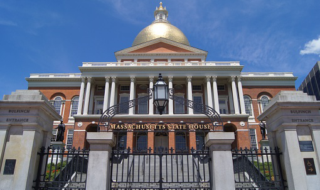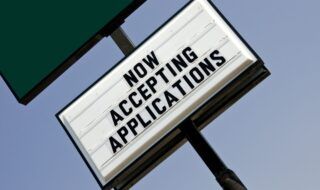NFIB Comment for Today’s Joint Committee on Labor & Workforce Hearing
NFIB Comment for Today’s Joint Committee on Labor & Workforce Hearing
November 17, 2025
Bills being pushed would mandate job-killing hikes in the minimum wage and extend UI to striking workers
FOR IMMEDIATE RELEASE
BOSTON, MA (Nov. 17, 2025) – The National Federation of Independent Business (NFIB), the nation’s leading small business advocacy association with thousands of members across the Commonwealth, released the following statement by NFIB State Director Christopher Carlozzi, commenting on the Joint Committee on Labor and Workforce Development hearing for several harmful bills being held later today. The legislation being heard includes a 33% hike in the state minimum wage and extending unemployment insurance (UI) benefits from the Commonwealth’s broken system to striking workers.
“Despite the rhetoric about competitiveness and affordability, Beacon Hill lawmakers are exploring new ways to make the Commonwealth less affordable, smother small businesses and Main Street job creation, and further strain our broken and nearly insolvent UI system,” said NFIB’s Massachusetts state director Christopher Carlozzi. “Setting the base wage at $20 per hour will have a disproportionately negative impact on the state’s smaller employers. To absorb these added labor expenses, small businesses will be forced to raise prices, cut worker hours, reduce jobs, or where available, automate. It’s no wonder Massachusetts is ranked one of the highest cost states in the nation to conduct business.”
House Bill No. 2107 and Senate Bill No. 1349 raise the state minimum wage to $20 per hour. If the bill advances, it will make Massachusetts one of the highest minimum wages in the country. Additionally, House Bill No. 2071 attempts to reinstate mandatory time-and-a-half pay for retail on Sundays and holidays, a policy phased out in the 2018 Grand Bargain agreement.
In May of 2023, NFIB released an economic study (Economic Impacts of a Proposed Minimum Wage Increase in Massachusetts) conducted by Amherst-based Regional Economic Models, Inc. (REMI) to determine the economic impact of legislation seeking to raise the minimum wage to $20 per hour. The study found that if similarly filed bills became law, over the next decade approximately 23,000 jobs would be lost, representing more than 0.5% of the state’s employment base. Almost 14,000, or 57%, of job losses would be suffered by small businesses with nearly 22.5% coming at the expense of firms with less than 20 employees. The real economic output loss, resulting from the proposed minimum wage hike over that decade, would exceed $3.4 billion. Nearly $1.8 billion, or 52%, of that lost economic output would have been produced by small businesses.
House Bill No. 2168 and Senate Bill No. 1319 will only worsen the UI crisis facing Massachusetts employers by allowing striking workers to collect unemployment insurance benefits in the instance a strike lasts longer than 30 days. It also allows workers to collect benefits sooner if the business hires replacement workers.
“Now is not the time to encourage increased use of the unemployment trust fund in its fragile state,” continued Carlozzi. “Especially when it comes to interfering in negotiations between private businesses and labor unions. If passed, Massachusetts would run the risk of violating federal unemployment rules as Oregon has done with similar legislation.”
While other states used billions of dollars to shore-up their UI Trust Funds using federal CARES Act and ARPA dollars, Massachusetts only used a fraction of what was needed, allocating a mere $500 million. In April, following a rise in Springfield’s unemployment rate, recipients were authorized to collect up to 30 weeks of benefits, something no other state allows. Finally in October, the maximum weekly benefit rose to $1,105 per week as a result of being indexed to the state’s average weekly wage.
Massachusetts employers are already paying some of the highest unemployment insurance taxes in the nation with businesses repaying almost $5 billion in UI debt as a result of money borrowed from the federal government during the pandemic ($2.1 billion of which is attributable to an accounting error made by the state). The Department of Unemployment Assistance projections anticipate the UI Trust Fund will be insolvent by Q4 of 2027, triggering additional tax increases on employers.
Earlier this year, NFIB conducted a radio and digital ad campaign urging legislators to reform the state’s broken unemployment insurance system. For more on NFIB’s UI campaign visit ProtectMassachusettsSmallBusiness.org.
###
For over 80 years, NFIB has been advocating on behalf of America’s small and independent business owners, both in Washington, D.C., and in all 50 state capitals. NFIB is nonprofit, nonpartisan, and member-driven. Since our founding in 1943, NFIB has been exclusively dedicated to small and independent businesses, and remains so today. For more information, please visit nfib.com.
NFIB is a member-driven organization advocating on behalf of small and independent businesses nationwide.
Related Articles














